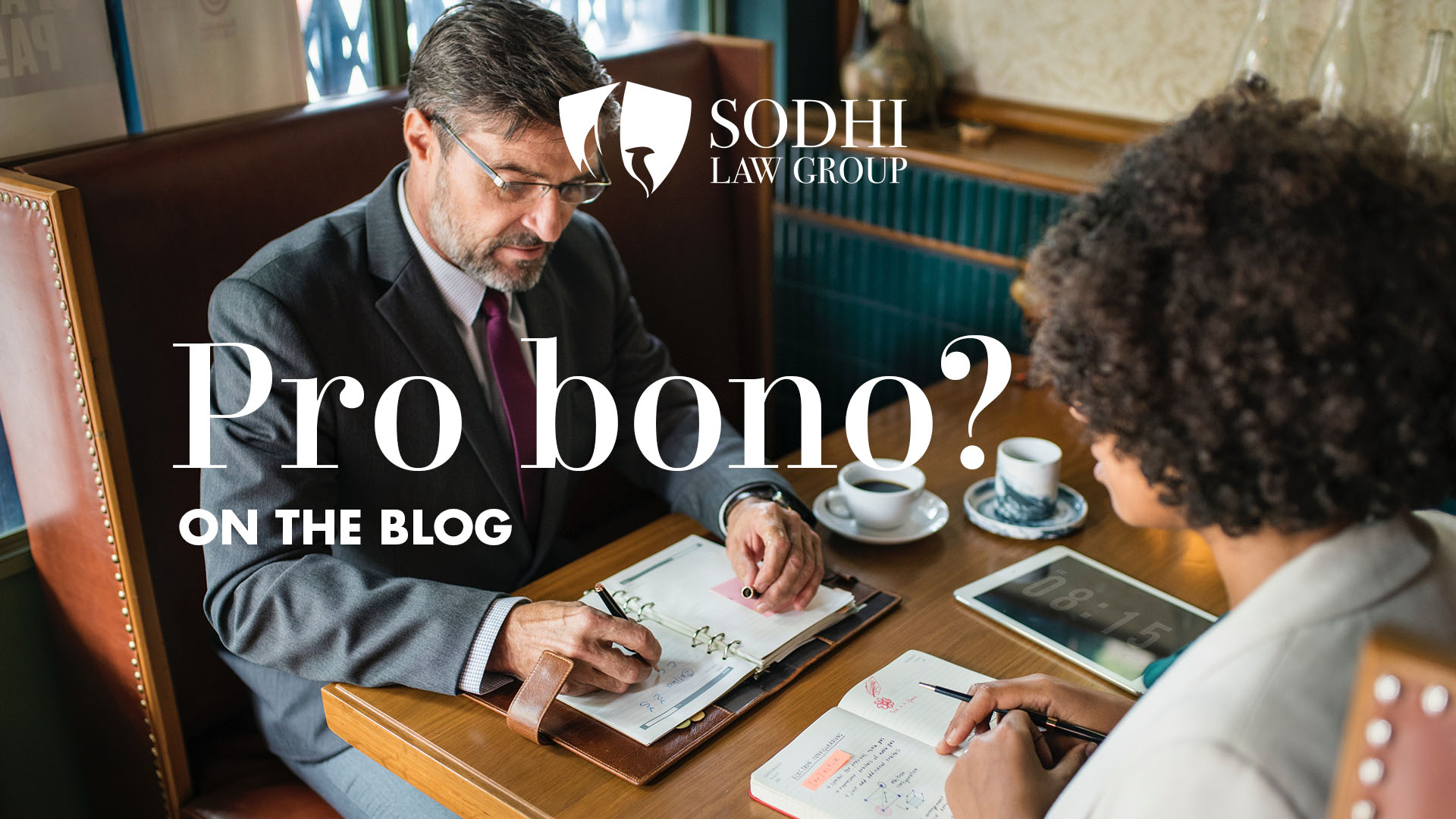Have you ever asked yourself “what does pro bono mean”? Have you considered that sometimes attorneys do work for something other than monetary compensation? Wondering what would drive them to do such a thing? Read on. Pro bono publico (English: for the public good; usually shortened to pro bono) is a Latin phrase for professional work undertaken voluntarily and without payment. Unlike traditional volunteerism, it is service that uses the specific skills of professionals to provide services to those who are unable to afford them. In the legal profession, the term refers to legal services performed free of charge or at reduced fees for the public good.
Helping Others For Free or a Reduced Fee.
For decades, pro bono service organizations have helped marginalized communities and underserved populations that are denied access to justice. These populations often include children and the elderly who lack the income necessary to pay for services. A lawyer may also privately accept a case “pro bono,” meaning that he won’t charge the client or he will accept a significantly lower fee for his services. He or she may take the case without pay in order to devote time and effort to improving or amending the law or the legal system, such as through lobbying. He or she may also contribute financial resources to organizations that provide free or reduced-fee legal services to clients of limited means as a means of “pro bono” participation.
Providing a Service That is in High Demand.
There’s an overwhelming need for legal service among the impoverished. According to an American Bar Association study, at least 40% of low and moderate-income households experience a legal problem each year. Yet, the collective civil legal aid effort meets only about 20% of those legal needs.
Every lawyer has a professional responsibility to provide legal services to those unable to pay. Under ABA Model Rule 6.1, a lawyer should aspire to render at least 50 hours of pro bono legal services per year. The ABA offers dues waivers to certain senior and inactive members of the bar who volunteer 500 or more hours of their time. Some law firms and local bar associations may recommend fewer or more hours of pro bono service.
It’s an Investment for Lawyers.
In the legal world, many attorneys are asked (if not required by the state or their firm) to take on pro bono cases every so often. This may be to promote the firm’s agenda or as a public service to an individual or a group of people that can’t afford to stand up to a government entity or large company on its own.
Highly publicized cases often entice attorneys or law firms to provide pro bono work. These services are provided for low or no fee because winning the case could mean a high level of recognition for the lawyer or law firm – and perhaps means scoring future clients.
Typically, pro bono cases are about passion for the attorney – passion for serving, for publicity, or for the cause. All can be ways that an attorney gets “paid” for pro bono work. The work comes from the heart. When an attorney is driven by passion in their pro bono case they will work just as hard or harder than in others where he or she is making money.
Pro bono work is also seen as a form of charitable service that can often give attorneys a sense of purpose and mission to their practice, outside of money. Attorneys at times get a bad rap. Pro bono work (and wins in these cases) can help burnish the image within the community in which these attorneys serve.
Where to Obtain Pro Bono Services.
All state and local bar associations have pro bono committees where attorneys can volunteer their time. They might also provide help through legal aid services structured to offer free representation or representation on sliding fee scales for those who cannot afford help otherwise. Legal aid services vary by area of law so it’s always good to browse until you find the right one for your legal issue. For a list of free or reduced cost legal aid services visit http://www.probono.net/aba_oppsguide/search?state=CA.


